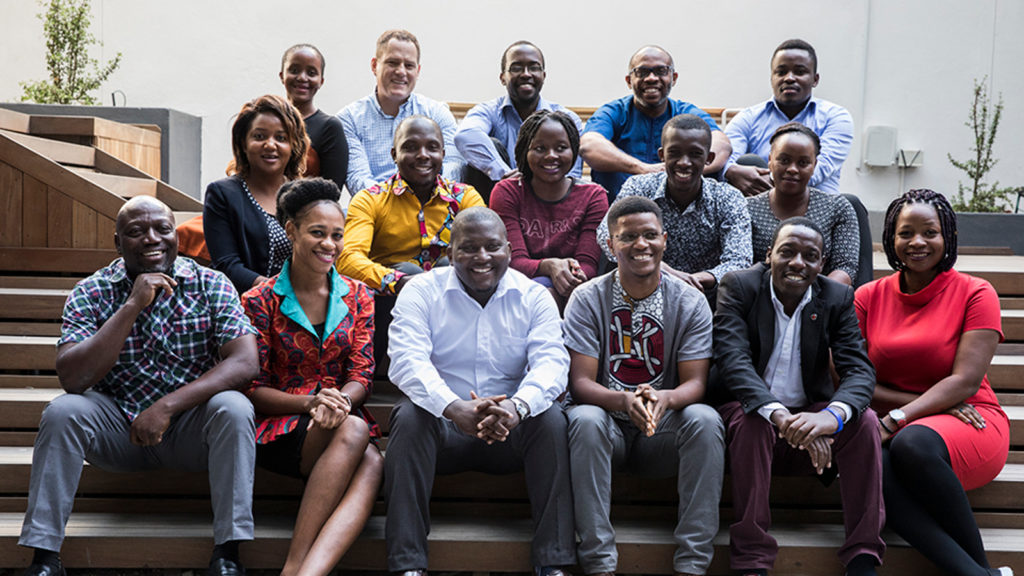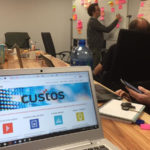Artificial Intelligence (AI) is no longer just a buzzword. It is embedded in everyday work, from drafting emails to automating entire workflows. For Memeburn’s…
Here’s who made shortlist of the 2019 Africa Prize for Engineering Innovation

UK-based Royal Academy of Engineering has announced the 16 innovators shortlisted for this year’s Africa Prize for Engineering Innovation. The shortlist includes a P2P currency exchange platform and another that tracks immunisation data.
In a statement on Monday (19 November) Africa Prize judge and Cameroonian entrepreneur Rebecca Enonchong said the shortlist has come to represent “the most talented engineers on the continent”.
Now in its fifth year, the Africa Prize for Engineering Innovation encourages sub-Saharan African innovators to develop local solutions to challenges in their communities.
The prize provides selected innovators with support that includes funding, business training, mentoring, as well as access to the academy’s network of engineers and business development experts.
The 2019 Africa Prize for Engineering Innovation shortlist is made up of innovators from Burkina Faso, Nigeria, Kenya, SA, Uganda and Zambia
After seven months of mentoring and training, four finalists will be selected from the shortlist.
In June next year these finalists will get the chance to present their businesses to judges in front of a live audience in Kampala, Uganda after which one winner will receive £25 000, and three runners up will be awarded £10 000 each.
This year’s shortlist is made up of innovators from six countries, namely: Burkina Faso, Nigeria, Kenya, South Africa, Uganda and Zambia. The candidates and their technologies are:
Burkina Faso
SolarKoodo: Burkinabé Safiatou Nana has developed a solar irrigation system that uniquely caters for semi-arid areas where precision and efficiency are essential.
Nigeria
3-D-3-P Industrial dryer: Dele Sanni has developed an industrial food dryer that dries grain for livestock feed faster and increases the nutritional value of food stocks.
WellNewMe: Dr Obi Igbokwe has come up with an algorithmic approach to proactively identify people at risk of contracting non-communicable diseases.
Zenafri: Elizabeth Kperrun has developed an app that teaches toddlers basic language and numeracy skills in their native tongue.
Kaoshi: Chukwunonso Arinze has developed an online P2P currency exchange platform that helps users cut costs and waiting periods.
Kenya
Smart Brooder: George Kimani has come up with a system that takes the guess work out of poultry farming by automating heating systems according to an animal’s ages.
Majik Water: Kenyan Beth Koigi has developed a technique for harvesting water from the air which provides off-grid communities with a new source for affordable, clean drinking water.
Sign-IO: Roy Allela from Kenya has developed a smart-glove that tracks and translates sign language movements into speech in real-time.
Chanjoplus: Collince Oluoch has developed an online platform that tracks immunisation data and helps health workers ensure all children are vaccinated.
Elo-cart: Kenneth Guantai has developed a battery powered system that recoups energy from motion to self-power hand carts used by traders, farmers and health workers.
JuaKaliSmart: James Ochuka has come up with an online platform that connects “JuaKali” or informal artisans directly to their customers.
South Africa
Pelebox Smart Lockers: Neo Hutiri has developed secure temperature-controlled lockers that eliminate medication queuing time for patients.
Hybrid five-axis machine tool: Lukas du Plessis has developed a hybrid machine tool that increases productivity, but costs less to manufacture than traditional machine tools.
Uganda
Smart Havens Africa: Anne Rweyora’s social enterprise provides self-sustainable housing solutions to vulnerable and low to moderate income people who are unable to secure long-term affordable housing in the market.
The Vertical Farm: Paul Matovu has developed a “farm-in-a-box” for urban areas. The Vertical Farm uses urban waste to grow high yield plants.
Zambia
Baby Delivery Kits: Zambian Muzalema Mwanza’s social enterprise Safe Motherhood Alliance has developed disposable and affordable equipment that helps midwives deliver babies safely.
Featured image: Group photo of the 2019 Africa Prize for Engineering Innovation candidates (credit Royal Academy of Engineering)

